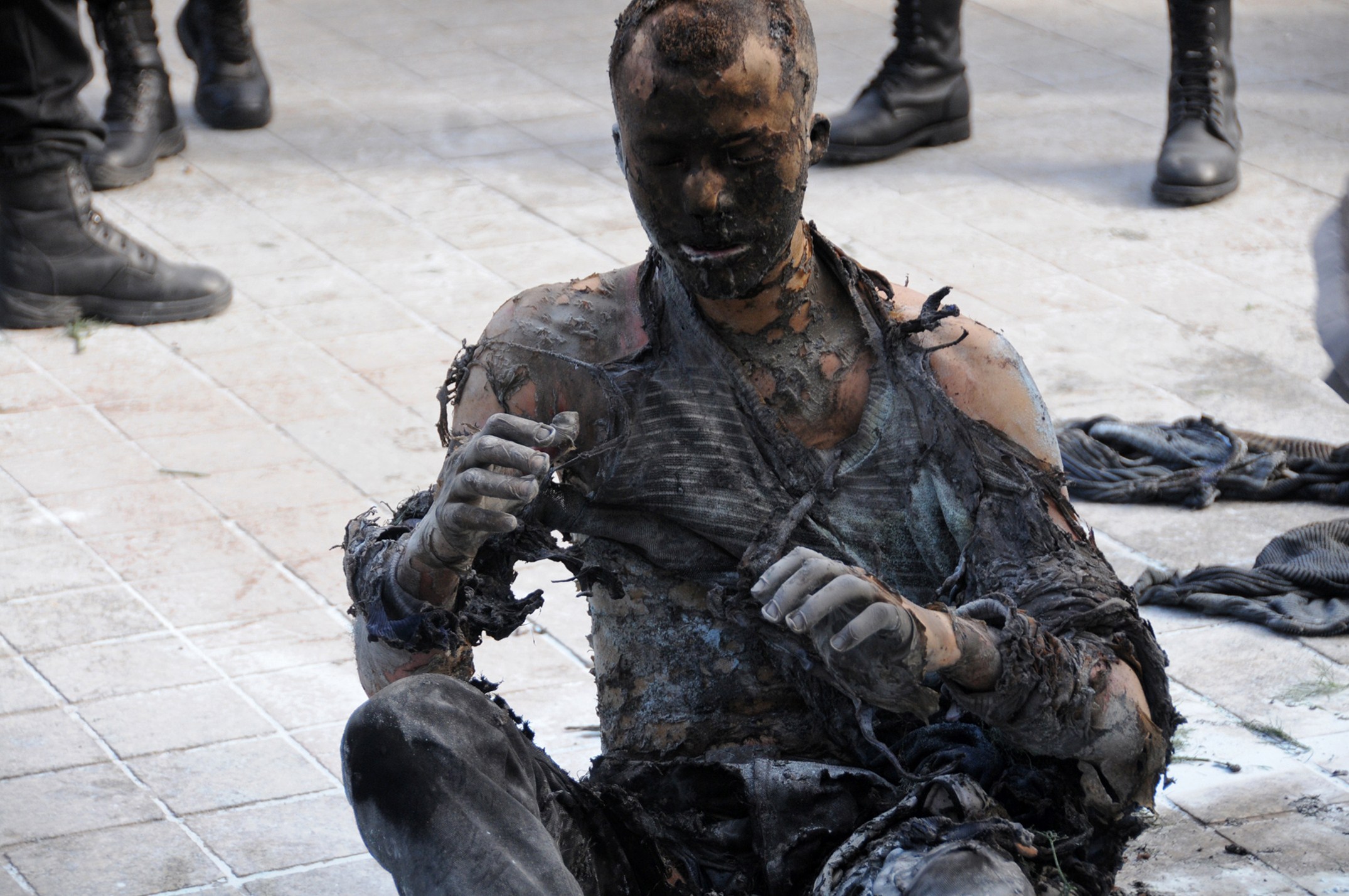The National Electoral Commission (NEC) officially announced on Wednesday that President Abdel Fattah Al-Sisi has secured a second four-year presidential term with 97% of valid votes in a sweeping victory.
Meanwhile, Moussa Mostafa Moussa received 656,534 votes, with just 2.92% of valid ballots cast in his favour.
Since early Wednesday morning, Cairo was bracing to celebrate Al-Sisi’s expected win, as several public squares hosted celebrations and festivals.
Following the results’ announcement Al-Sisi appeared on state television, congratulating Egyptians for participating in the election. “This was a fight that the Egyptians fought for their own presence,” he said, adding that the voting was a process to stand “against those who wanted to hijack the dreams of Egyptians.”
He praised the turnout of voters, as well as the role of the armed forces, the police, and the judiciary in securing and monitoring the elections.
The newly re-elected president promised to “work faithfully and save no effort in building state institutions and preserving stability.”
“There is no difference between those who elected me and those who did not’,” Al-Sisi asserted, expressing his thanks to the other candidate Mousa Moustafa Mousa.
Less than half of registered voters participated in the election.
Lasheen Ibrahim, head of the NEC, announced that about 24,097,000 voters participated in the election, or 41% of all registered voters.
He added that the valid votes numbered approximately 22,491,000, or 92.73% of all votes, while void votes registered about 1,762,000, 7.27%.
Ibrahim, speaking at a press conference, praised the electoral process, adding that the commission was keen for the election to end in good shape. He added that the election was independent and “took place in a democratic manner.”
“Your participation meant believing in democracy,” Ibrahim added.
“NGOs, local and foreign, witnessed the election and observed the process,” said the head of the NEC, who has refused any criticism directed towards the electoral process.
The commission previously filed complaints against two media outlets who spotted violations or pointed out that the state had been intervening in an attempt to elevate voter turnout.
However, throughout the three days of voting, officials, members of parliament, and several well-known families and businesspersons were reported to have been influencing citizens to go out and cast their votes. On the last day of the election, the commission cited an already existing article in the elections laws, saying that those who do not participate would be fined EGP 500.
The statement was also reported by state media, which added that boycotters will be referred to prosecution. Other rumours spread that boycotters would have their subsidy cards annulled.
Before the election, several presidential candidates either withdrew, citing violations and an unjust environment, or were arrested due to other legal violations.
Days before the deadline of accepting applications, Moussa decided to run in the election. In several press statements and interviews, Moussa said that he indeed participated to prevent the election being, effectively, a referendum.
Moussa held a press conference after the results, saying, “anyone who would have ran against Al-Sisi would have gotten even fewer votes.” The liberal politician, who formally endorsed Al-Sisi to run in the election, said that he is satisfied with the results.
Last week, the presidential election took place over three days between incumbent Al-Sisi and Moussa, leader of El-Ghad Party.
Al-Sisi, a former military officer-turned-politician, who came to power after the ouster of former president Mohamed Morsi, is before a myriad of challenges that Egypt is now facing, such as counter-militancy, especially in the Sinai Peninsula, a looming water crisis amid the ongoing construction of the Grand Ethiopian Renaissance Dam, and raising the social status of Egyptians after several neoliberal measures that slashed subsidies on certain goods.
Diplomatically, the president has pushed his way into the international scene, gaining the support of several superpowers, such as the United States and Russia. He also managed to continue equipping the Egyptian Armed Forces with armaments from several different countries.

